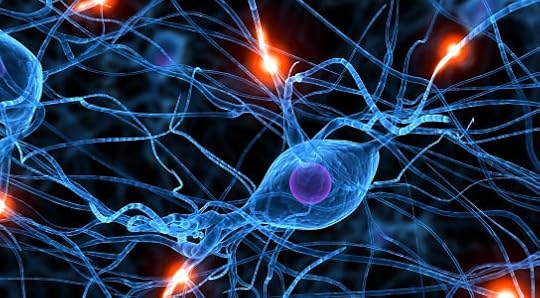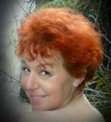Regarding memory

Image:capitalotc.com
“Macrophages.” His expression was smug. “I’ll never forget the macrophages.” We had just had a discussion about memory and how things learned since the attack fail to stick unless he uses them.
“But you remember macrophages.”
“Of course! That was important!” The macrophages are his talisman. He brings them up every time. My son has acquired an uncommonly good knowledge of physiology through his determination to recover. He also has the impression I am a walking Wiki-thesaurus. I suppose from his perspective I am a bit of a dinosaur … and I hope to God he doesn’t read this or I’ll have another new nick-name…
Every so often though, I surprise him. The macrophages were one such moment when, to his delight, I didn’t know the answer. For the past three years they have come up fairly frequently, as they did the other day in one of the odd conversations that we share. I’d been explaining the anatomy of his dishwasher to him, its innards being pretty much a mystery to him.
“…but you know what the ‘trap’ is in anatomy?” My puzzled expression lit his face with something approaching beatitude. It fell again as I answered,
“Trapezoid.”
“Just for a minute I thought I had you… you had to go and spoil it…” The mock glum expression descended and that’s when he started muttering about his beloved macrophages.
It is surprising really, given the level of brain injury that Nick sustained back in 2009, that he can even enunciate the word, let alone have an intelligent conversation about these particular cells. Even more surprising, on the face of it, that he can remember their name and function. But, as he said, they are important … one of his cherished victories… and so he has stored the memory in what you might see as a top level file. Details of other things often slide into obscurity… recent memory is one of the very few blips that remain in Nick’s mind from the injury.
We are in a rare position where many things are concerned. Most of us take our minds, senses and bodies for granted. We know that some of those senses may fade as we age and we accept that as an inevitable part of getting older. We even accept that the memory does odd things as we age. Nick, on the other hand, woke from the coma paralysed, mute and with both his hearing and sight impaired. The thought processes of his quicksilver mind were slow and laboured, his memory disorganised and unreliable, the prognosis appalling.
His recovery has been damned near miraculous, brought about largely through an utter determination to defy every negative prediction. His mind and his wit are, to all outward appearances, as sharp and as quick as ever. The only visible problems relate to his reduced mobility and those he continues to address on a daily basis with a dedication that has to be seen to be appreciated.
The invisible scars are a different matter. Though minimal in functional terms in comparison to what they were, there are still areas, such as his sight and his memory, where Nick himself can see the problems even if others do not see them. We have learned to watch memory working and understand how things that have an emotional resonance and relevance are filed at the ‘top’ level, whilst minor or bland details are buried in the depths.
Bodies have memory too and much of Nick’s physical recovery is based around repatterning, reminding the neurological and physical connections of what they once knew. It is odd that things we have not done in a very long time… like that first waltz in decades or riding a bicycle… come back easily once we allow the body to move into them, even if we believe we have forgotten how…
You can see this yourself as you look back on your life so far. The highlights that spring to mind are all rooted in emotion. We seldom remember the grey moments, but the times of joy and sadness stand out. Those we recall first. Other times come back as we delve, almost by an emotional ranking based on intensity, whether good or bad.
It occurred to me that most of us spend most of our time simply moving through a monochrome life of vague emotions shaped by routine, habit and duty. There are few spots in most days where we are conscious of a strong enough emotion to forge a first level memory. Others… second level recollections… seem to need a trigger to bring them back to the surface of the mind. The vast majority of our lives as we have lived them slips into utter oblivion, buried so deep that recalling those moments becomes nigh impossible.
Having seen first-hand how easy it is to lose so much in a single split second of a horror beyond our control, I was obliged to take stock of how I was filling the filing cabinets of my own memory. It was a wake up call, long before I began to understand the process. Literally a wake-up call… the intensity of those first days was raw and terrible. But those days are etched in sharp relief in memory.
I never want to feel that way again. But I realised I did want to live my life with that level of passion. I wanted to be alive while I live. Perhaps, after all, it is no so strange that it was from this point my own life began to change. External events seemed to take a hand and unfold to bring me to the School and the life I live today. Nor is it coincidence that I work with a school whose techniques seek to bring vividness to everyday life.
Both our conversation and my reverie were brought to a halt by a delivery arriving. As I unpacked my son’s purchases he explained that he had bought them for a joke… a set of Nunchaku, way too lightweight to be used for anything else. Except, they proved to be a trigger for a memory I had buried deep enough to need the reminder of their physical presence in my hands.
I wandered out into the garden with my son watching from the door to see what I was up to. He laughed as I took the jacket off, realising what I was at, and folded his arms in preparation for enjoying the opportunity to heap ridicule upon his mother. He stopped laughing and I watched in, I admit it, unholy glee, as his face went through every stage of shock and horrified disgust as I swung the nunchaku with a 30 year old skill I had, apparently, not entirely forgotten. Once upon a time I had made myself a set and taught myself to use them as part of my morning meditation… the body does not need to be still for the mind to fly free.
“You can’t do that!” he said as I passed the chained sticks around my body.
“Why not?” Being an evil hobbit I could only grin at his crestfallen face.
“Cause you’re my Mum!”




